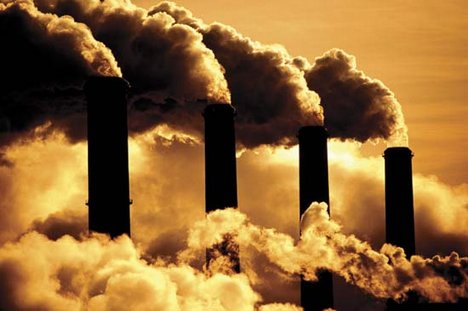A draft report of the Intergovernmental Panel on Climate Change (IPCC), also called the “Synthesis Report”, highlights that ruling out certain technological solutions would entail a significant rise in mitigation costs. The 5th Assessment Report of the IPCC stated that without CO2 capture and storage (CCS) the costs of mitigation would more than double. The leaked report is a compilation of hundreds of papers aiming to present the best scientific and economic analysis to government leaders and policymakers worldwide. Moreover, it will guide the climate negotiations under the United Nations Framework Convention on Climate Change (UNFCCC) and will be crucial in the conclusion of a global climate agreement at the 21st Conference of the Parties (COP) in Paris in December 2015.
The report, leaked in the run up to the United Nations Climate Summit in New York starting tomorrow, warns that an increase in global mean surface temperature to 2.5 ̊C above pre-industrial levels may result in economic losses amounting to 2% of global GDP. It also notes that there are costs associated with keeping temperature rise below 2 ̊C, the recommended target to avoid irreversible change climate. These could include a reduction in global consumption of 1.7% in 2030, 3.4% in 2050 and 4.8% in 2100, estimates the report.
While the report notes that mitigation technologies to keep temperatures within the acceptable target exist, it also notes that “substantial technological, economic, social, and institutional challenges” remain. Even though undertaking mitigation action may entail risks, delayed mitigation or inaction with regards to climate change will have irreversible impacts. The report estimates that delaying mitigation action until 2030 could raise costs by 44% through to 2050. Inflating the costs of mitigation will inevitably lead to conflicts for resource allocation with respect to healthcare, education and biodiversity. In simple terms, the more expensive climate change abatement is, the higher the risk of inaction and failure. Ignoring solutions to devastating climate change is as damaging as ignoring the problem. According to the report, the failure to deploy CCS could result in the cost of the most stringent CO2 reductions more than doubling. Furthermore, according to the recent 5th Assessment Report (AR5) of the IPCC without CCS the cost of mitigation would increase by 138%. The AR5 further highlights the key role of CCS combined with biomass, also known as Bio-CCS, in attaining carbon negative emissions.
Combating climate change cost free?
What is more, a new report of The Global Commission on the Economy and Climate entitled Better Growth, Better Climate argues that addressing climate change may even be cost free. This report calculates that measures to limit CO2 emissions would cost approximately EUR 3 trillion over the next 15 years, an increase amounting to roughly 5% over the amount that would have likely been spent anyway for the construction of new power plants, transit systems and other infrastructure. The report highlights the importance of taking into account the secondary benefits of greener policies, such as lower fuel costs, fewer premature deaths from air pollution and reduced medical bills. These changes would entail cost cuts in the long term.
Felipe Calderon, chairman of the commission, argues this report proposes a way of reconciling economic growth with environmental responsibility. The big challenge the governments face is that of providing correct market incentives that redirect future infrastructure investment toward low-emission options.
After last weekend’s People’s Climate March, in which thousands demanded action around the world, it is clear that there is growing support from societies to shift in the direction of sustainable and green economies and do the utmost to prevent further climate change. Having recognised the overwhelming evidence confirming the need for immediate action, Bellona is actively involved in the development and deployment of mitigation technologies. For more information on Bellona’s work on CCS and Bio-CCS see here.




